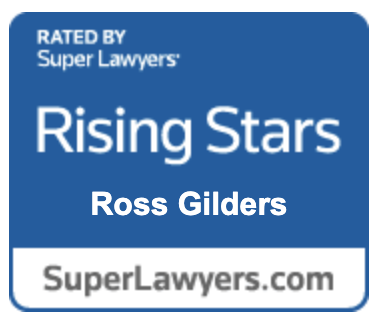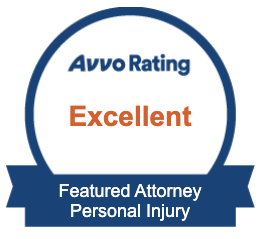Decoding Product Liability Law in Petoskey
- Jun 7, 2024
- 5 min read
Updated: Jan 17, 2025

Every year, thousands of consumers are injured or fall ill due to defective products in the United States. In Petoskey, Michigan, product liability is a growing concern for manufacturers and consumers.
Product liability refers to the legal responsibility of manufacturers, distributors, suppliers, and retailers for injuries caused by their products. It covers various consumer goods such as food, drugs, appliances, vehicles, and toys.
This Michigan legal guide will explore the basics of product liability law in Petoskey and what it means for consumers and businesses.
Definition of Product Liability Law
Product liability law is a set of legal rules that hold manufacturers, distributors, suppliers, and retailers liable for any injuries their products cause. It hinges on the principle that these parties owe a duty of care to consumers and are responsible for ensuring their products are safe for use.
Product liability laws aim to ensure consumer safety by establishing standards of responsibility and liability for products entering the marketplace. If a product causes harm or injury to a consumer due to defects in its design, manufacturing, or marketing, the responsible party can be held liable for damages. Potential damages can include compensation for medical bills, lost wages, pain and suffering, and other related expenses.
Understanding Product Liability in Petoskey, Michigan
Product liability law holds manufacturers and other parties accountable for the safety and quality of the products they produce and distribute. Its primary purpose is to protect consumers from harm caused by defective products and to provide avenues for legal recourse in such cases.
Product defects typically fall into three categories:
Manufacturing Defects: These defects occur during the production or assembly of a product involving a deviation from the intended design, making the item different from other products in the same line. For example, a car with defective brakes due to an error at the factory would have a manufacturing defect.
Design Defects: These issues stem from inherent flaws in the product’s design, making it unreasonably dangerous even when manufactured as intended. For instance, a ladder designed with weak materials that cause it to collapse when in use would have a design defect.
Marketing Defects: These defects involve inadequate or misleading information about the product, including false advertising, insufficient warnings, or incorrect usage instructions, which fail to alert consumers to potential dangers associated with the product’s use. For instance, if a pharmaceutical company fails to warn consumers about the severe side effects of their medication, they could be held liable for any injuries caused.
Strict Liability Vs. Negligence in Product Liability Cases
In product liability cases, plaintiffs can often pursue claims based on either strict liability or negligence. Strict liability holds manufacturers liable for any harm their defective products cause, regardless of fault or intent. On the other hand, negligence requires plaintiffs to prove that the manufacturer’s actions or lack thereof breached their duty of care owed to consumers, resulting in harm.
It can be challenging for consumers to establish negligence in product liability cases, making strict liability an attractive legal avenue. However, in some cases, plaintiffs may pursue both claims simultaneously to increase their chances of recovering damages.
Importance of Understanding Product Liability in Petoskey
Understanding product liability law in Petoskey, Michigan, is crucial for consumers and businesses. It provides consumers a means of seeking legal recourse if a defective product harms them. They can hold the responsible party accountable and receive compensation for any damages.
For businesses, it serves as a reminder to prioritize consumer safety in their product design, manufacturing, and marketing. Compliance with product liability laws helps prevent consumer injuries and protects businesses from costly legal battles and damage to their reputations.
Legal Framework in Petoskey, Michigan
Michigan’s product liability laws are primarily governed by state statutes outlining the legal standards and procedures for pursuing product liability claims. These statutes establish the grounds for liability, the burden of proof, and the available remedies for injured parties.
MCL 600.2945: This statute outlines the legal definitions related to product liability, including what constitutes a “product” and “gross negligence.”
MCL 600.2946: This statute defines admissible evidence in a product liability action.
MCL 600.2946a: This statute determines the limitations of damages in product liability cases.
MCL 600.2947: This statute outlines the manufacturer or seller’s liability in a product liability action.
While Michigan’s product liability laws are primarily state-based, they may intersect with federal laws and regulations, particularly in cases involving interstate commerce or products subject to federal oversight. For instance, the Consumer Product Safety Commission (CPSC) is a federal agency that enforces safety standards for consumer products, and failure to comply with their guidelines could result in product liability claims.
Understanding these interactions is essential for navigating complex product liability cases effectively. However, Petoskey, like other jurisdictions, may have unique legal considerations or precedents that shape the adjudication of product liability cases.
Consulting with a knowledgeable Petoskey attorney who understands local laws and practices can provide invaluable insight and guidance in navigating such cases.
Case Studies Illustrating Key Aspects of Product Liability Law
To better understand how product liability law works in practice, let us examine some cases that highlight essential elements of these laws.
Case 1: A consumer sustains injuries when a power tool malfunctions due to a manufacturing defect. The plaintiff pursues a product liability claim against the manufacturer, alleging that the defect directly caused their injuries.
Case 2: A vehicle manufacturer faces allegations of a design defect that compromises the safety of its vehicles. Despite meeting manufacturing standards, the design flaw leads to recurring incidents of product failure and poses a risk to consumers’ safety.
Case 3: A pharmaceutical company fails to adequately warn consumers about potential side effects associated with its medication, leading to unexpected health complications for patients. Despite evidence of known risks, the company’s failure to provide sufficient warnings constitutes a marketing defect.
2018 Product Liability Case
Michigan Lawsuit settled a product liability case in 2021. Ross successfully represented a client in a product liability accident where the plaintiff was injured while operating a semi-truck for a Grand Rapids-based trucking brokerage.
During a 2018 incident, our client transported cargo with thirty racks arranged in rows. On his final delivery, when he had only two racks left, he unloaded the racks onto a mechanical lift. Despite the racks being stationary and locked with their engaged brakes, one rack unexpectedly rolled, causing a chain reaction.
Our client was knocked off the trailer and one of the racks fell onto his foot, causing a severe fracture and a deep laceration that later became infected. The extent of the injury was extreme, leading to two surgeries, and medical experts claim that our client will experience permanent damage as a consequence of this accident.
Each case study highlights aspects of product liability law and how courts may interpret and apply these principles in practice. Analyzing court decisions and outcomes provides valuable insights into the factors influencing case resolutions and liability determinations.
Balancing Consumer Protection and Business Responsibility
Product liability law is critical in safeguarding consumer safety and holding businesses accountable for the products they introduce into the marketplace. By establishing standards of accountability and liability, these laws incentivize companies to prioritize product safety and quality.
While product liability laws serve an essential consumer protection function, they also present business challenges regarding compliance and risk management. Meeting regulatory requirements and mitigating liability exposure requires significant business resources and diligence.
Businesses can adopt various strategies to minimize product liability risks while prioritizing consumer safety. These tactics may include implementing robust quality control measures, performing thorough product testing and risk assessments, and providing clear warnings and instructions to consumers.
Final Thoughts
Understanding product liability law is essential for navigating the complex legal landscape governing consumer safety and business responsibility in Petoskey, Michigan. By exploring the various facets of product liability law, we gain insights into its significance for consumers and businesses.
Michigan Lawsuit offers comprehensive legal services, including product liability representation, to clients in Petoskey and other nearby Michigan jurisdictions. Our experienced attorneys can help you understand your rights and options in a product liability case and provide robust representation to secure the best possible outcome for your case.
Contact us today to schedule a consultation and get the legal support you need.







